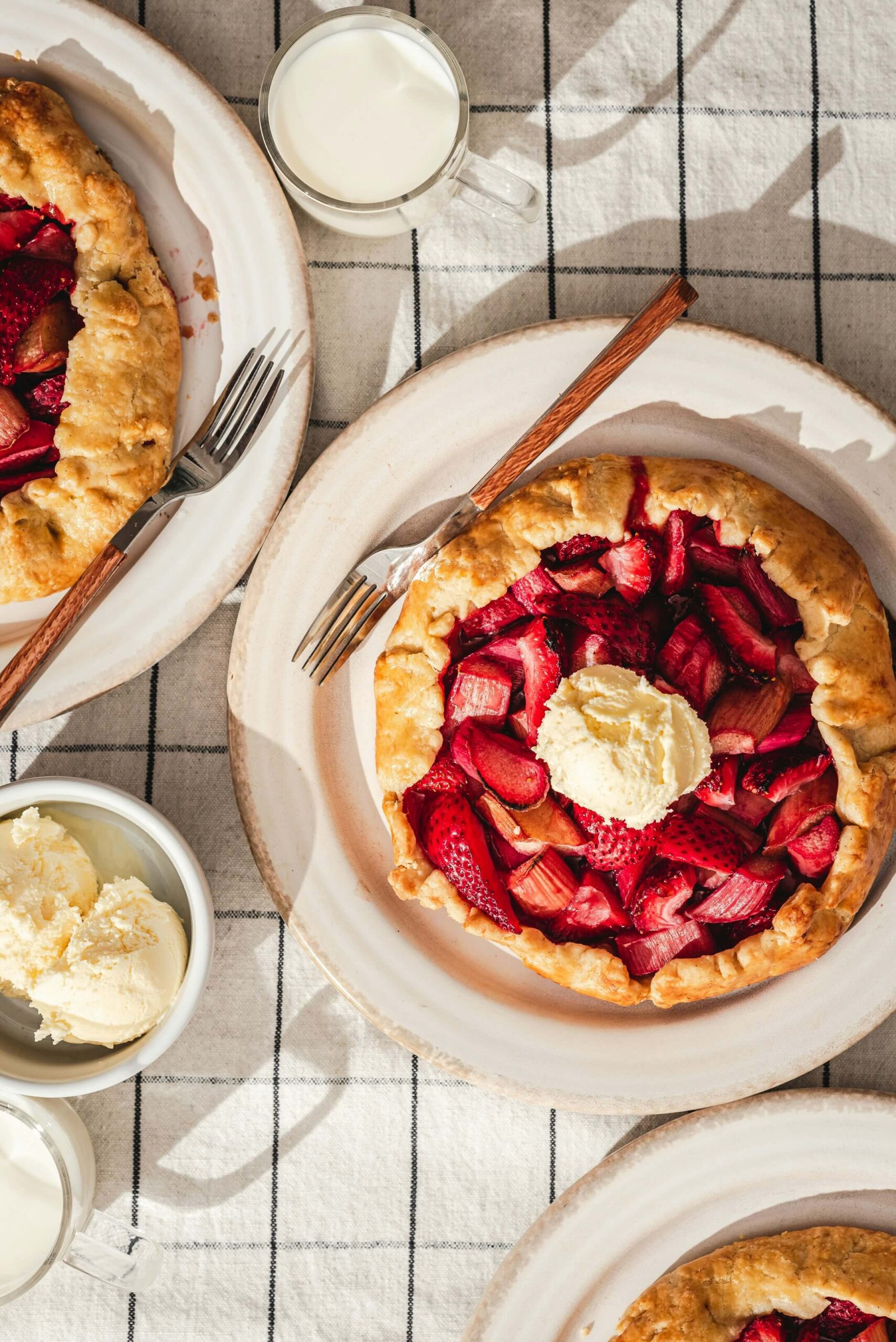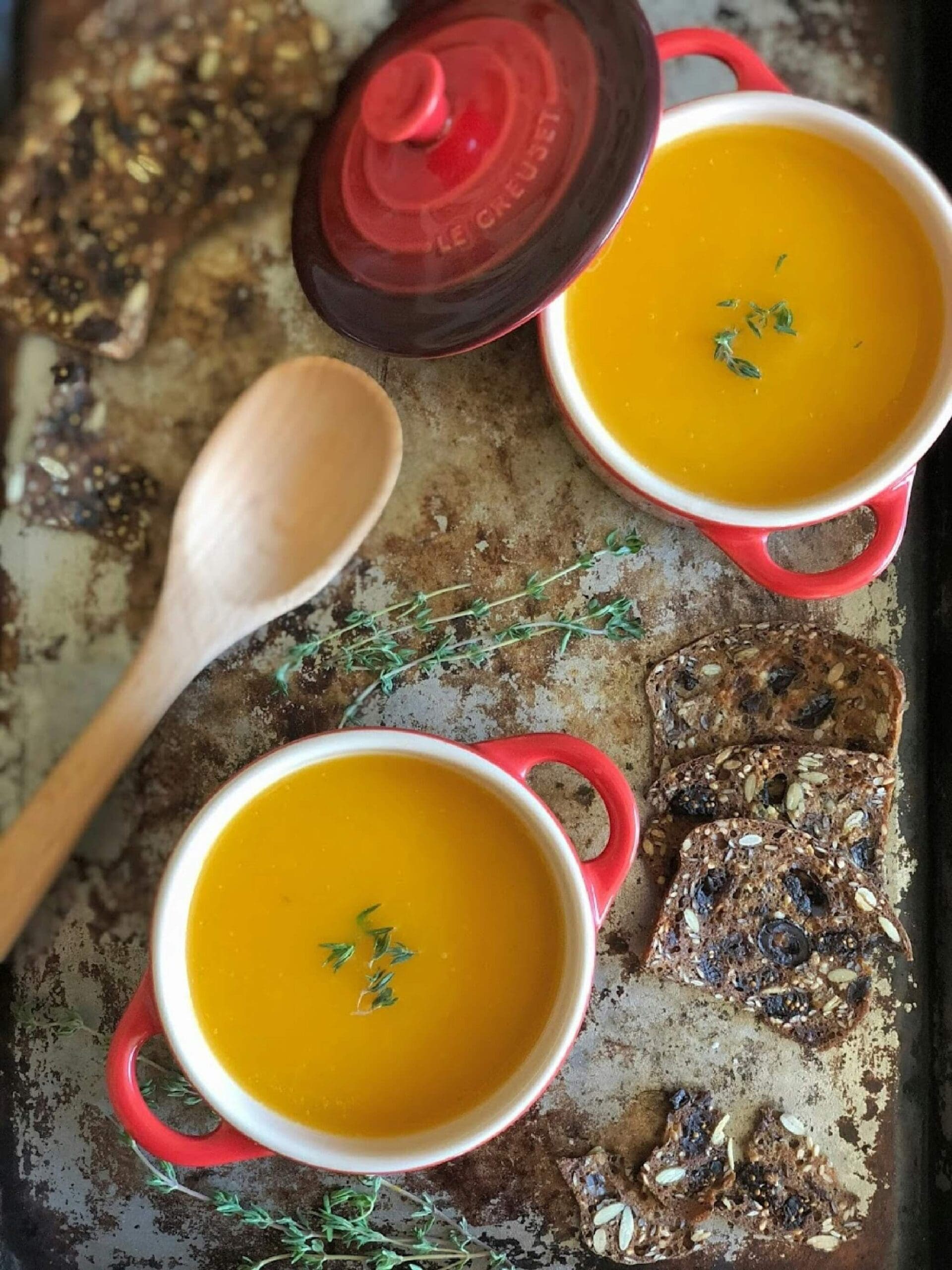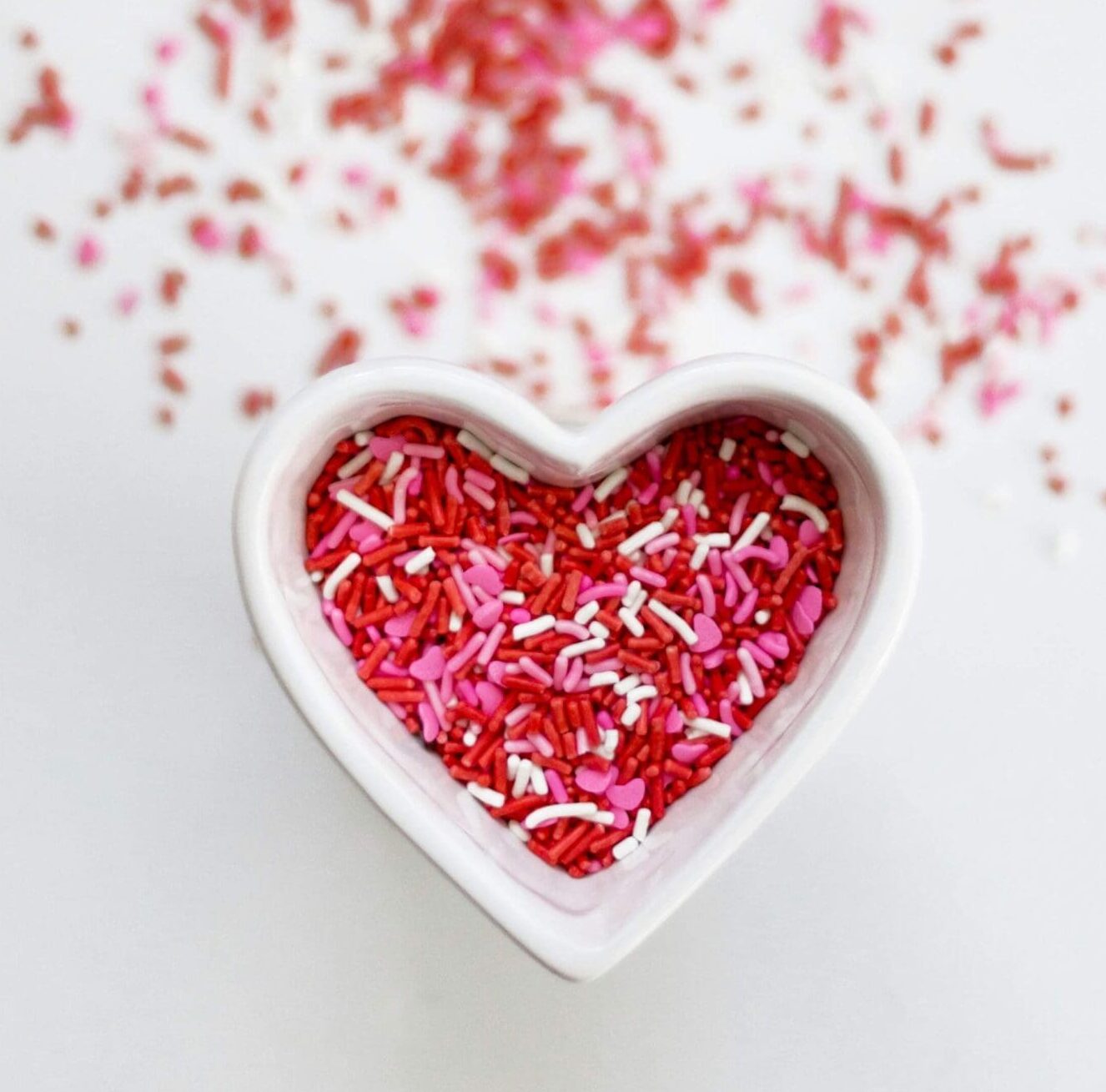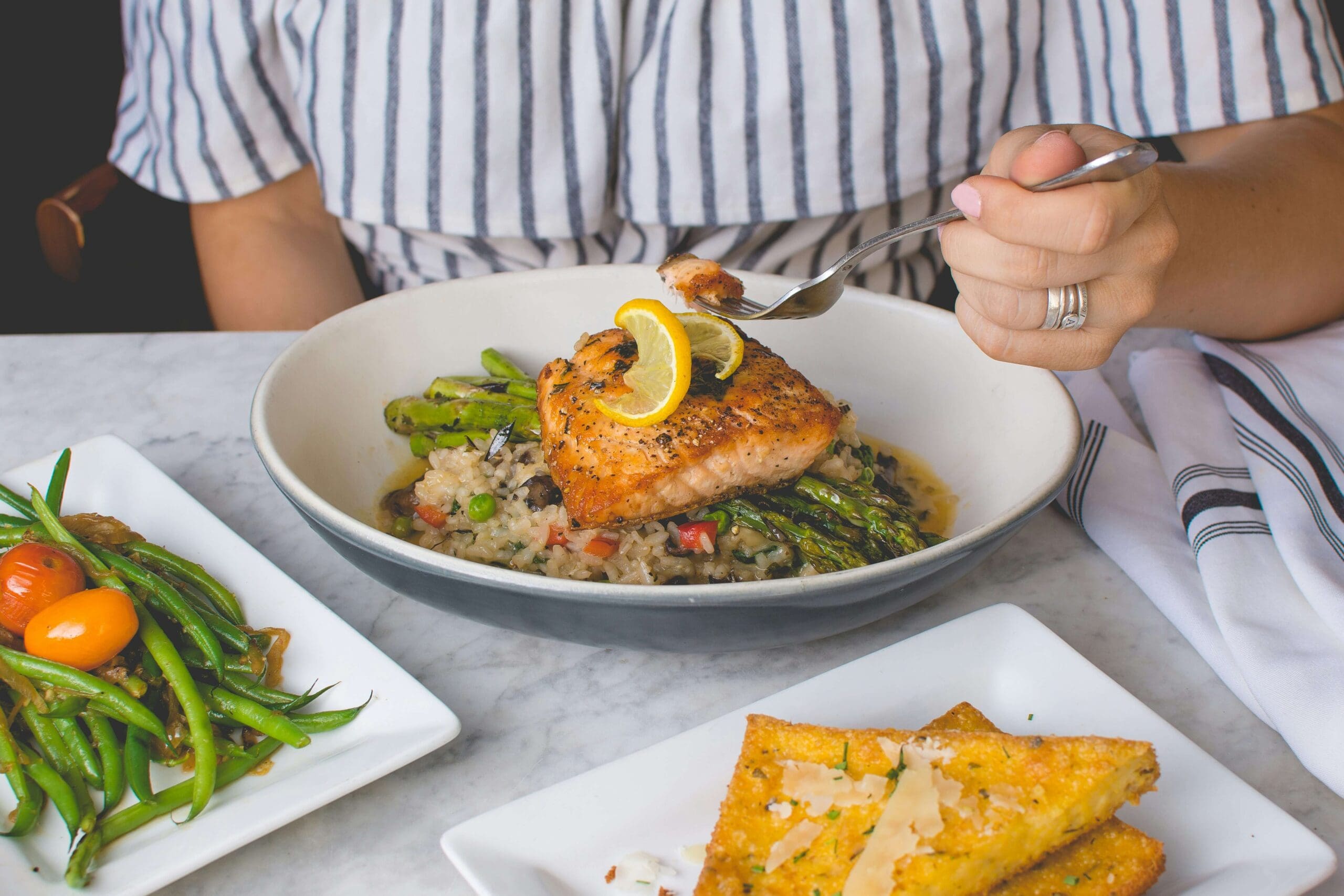Rhubarb might look like red celery, but this tart vegetable offers surprising benefits for people focused on cancer prevention, recovery, and overall health.
Those vibrant red stalks are packed with fiber, antioxidants, and vitamin K – nutrients that protect your cells, support bone health, and reduce inflammation. For cancer patients and survivors, these compounds matter. Research shows antioxidants in rhubarb may help lower oxidative stress, while its fiber supports gut health, which is directly tied to immunity and cancer risk.
Whether you’re going through treatment, reducing recurrence risk, or simply looking to eat more anti-cancer foods, rhubarb can be a smart addition to your diet when prepared properly.
What Is Rhubarb?
Rhubarb (Rheum rhabarbarum) is a perennial vegetable often cooked like a fruit in desserts or savory dishes. Its stalks range from bright red to pink or green.
In traditional Chinese medicine, rhubarb was used for digestive and detoxification benefits. Today, science confirms it contains antioxidants, polyphenols, and fiber all compounds studied for their role in cancer prevention and chronic disease management.
👉 Want a clear plan for what to eat to reduce cancer risk and feel more in control? Grab my Clean Scan Plan free guide for cancer prevention nutrition.
Can Cancer Patients Eat Rhubarb?
Yes – when consumed in moderation and prepared safely, rhubarb stalks can be a healthy part of a cancer-supportive diet. The leaves, however, are toxic due to oxalic acid and should never be eaten.
For those in treatment, rhubarb’s tart flavor may be challenging for sensitive taste buds or mouth sores, but cooked preparations can make it gentler. Always talk to your oncology care team if you’re experiencing side effects or dietary restrictions.
Rhubarb Nutrition for Cancer Prevention
One cup of raw rhubarb contains just 26 calories but provides:
- Vitamin K: crucial for bone health, especially for those at risk of osteoporosis from certain cancer treatments.
- Fiber: supports digestive health and healthy gut bacteria, which play a role in immune function and cancer prevention.
- Antioxidants (anthocyanins & polyphenols): protect cells from DNA damage that can lead to cancer development.
- Manganese, Vitamin C, Vitamin A, and Potassium: micronutrients that support energy, immunity, and tissue repair.
9 Evidence-Based Health Benefits of Rhubarb for Cancer Patients
- Supports Bone Health – Vitamin K strengthens bones, especially important for patients on hormone therapies that increase osteoporosis risk.
- Improves Digestive Health – Fiber and natural laxative compounds can help with constipation, a common side effect of chemotherapy or pain medications. Learn more about how gut health impacts cancer recovery.
- Lowers Cholesterol & Supports Heart Health – Important since cancer survivors often face higher cardiovascular risk.
- Rich in Antioxidants for Cancer Prevention – Anthocyanins and polyphenols protect cells from oxidative stress and DNA damage.
- Anti-Inflammatory Effects – Chronic inflammation is linked to higher cancer recurrence risk; rhubarb’s compounds may help lower it. Explore other anti-inflammatory foods to reduce cancer risk.
- Blood Sugar Regulation – Helps stabilize glucose, important for cancer patients managing metabolic health.
- Supports Healthy Blood Pressure – Potassium aids vascular function.
- Skin Protection & Healing – Antioxidants support skin repair, which may be impacted during treatment.
- May Ease Menopause Symptoms – Rhubarb root phytoestrogens may benefit women in treatment-induced menopause.
Is Raw Rhubarb Safe for Cancer Patients?
Raw rhubarb is very tart and high in oxalates. Cooking reduces oxalates and makes it easier to tolerate, particularly important for cancer patients managing digestive side effects or kidney risk.
Tips:
- Stick to 1–2 cups cooked per week
- Always discard leaves
- Pair rhubarb with calcium-rich foods (yogurt, fortified plant milks) to reduce oxalate absorption and support bone strength
How to Select, Store, and Prepare Rhubarb for Cancer Nutrition
- Choose: firm, crisp stalks with vibrant color.
- Store: wrap in plastic and refrigerate up to a week; freeze in chopped pieces for longer storage.
- Cook: stew with berries, roast for natural sweetness, or add to smoothies with calcium-rich foods.
FAQs for Cancer Patients
Is rhubarb safe during chemotherapy?
Yes, but avoid raw rhubarb if you have mouth sores or digestive irritation. Cooked rhubarb is easier to tolerate.
Does rhubarb help with cancer prevention?
While no single food prevents cancer, rhubarb’s antioxidants, fiber, and anti-inflammatory compounds contribute to a cancer-preventive diet.
Can rhubarb cause problems for cancer patients?
Excess rhubarb may raise kidney stone risk due to oxalates. Stick with moderate, cooked portions.
Bottom Line
Rhubarb isn’t just for pie, it’s a cancer-supportive food when enjoyed safely. With its antioxidants, vitamin K, and gut-friendly fiber, it supports bone strength, digestion, and overall resilience.
If you’re navigating treatment or recovery, focus on building a plate filled with anti-inflammatory, nutrient-dense foods like rhubarb, leafy greens, and berries.
Let’s get you to feel more confident about what to eat during and after cancer? Download my Clean Scan Plan — free guide for cancer prevention nutrition.
References
- Healthline. Rhubarb Leaves: Nutrition and Safety. Healthline. Accessed August 2025. https://www.healthline.com/nutrition/rhubarb-leaves
- Penn State Extension. Rhubarb: Love It for Its Taste, Eat It for Your Health. Penn State Extension. Accessed August 2025. https://extension.psu.edu/rhubarb-love-it-for-its-taste-eat-it-for-your-health
- National Center for Biotechnology Information. Therapeutic Role of Rhubarb in Intensive Care Medicine. J Intensive Care Med. 2018;33(2):84–92. https://www.ncbi.nlm.nih.gov/pmc/articles/PMC5849545/
- American Institute for Cancer Research (AICR). Health Benefits of Rhubarb. AICR. Accessed August 2025. https://www.aicr.org/resources/blog/health-benefits-of-rhubarb/
- National Center for Biotechnology Information. Anthraquinones and Bioactive Compounds in Rhubarb: Pharmacological Evidence. Front Pharmacol. 2020;11:1227. https://www.ncbi.nlm.nih.gov/pmc/articles/PMC7448319/






